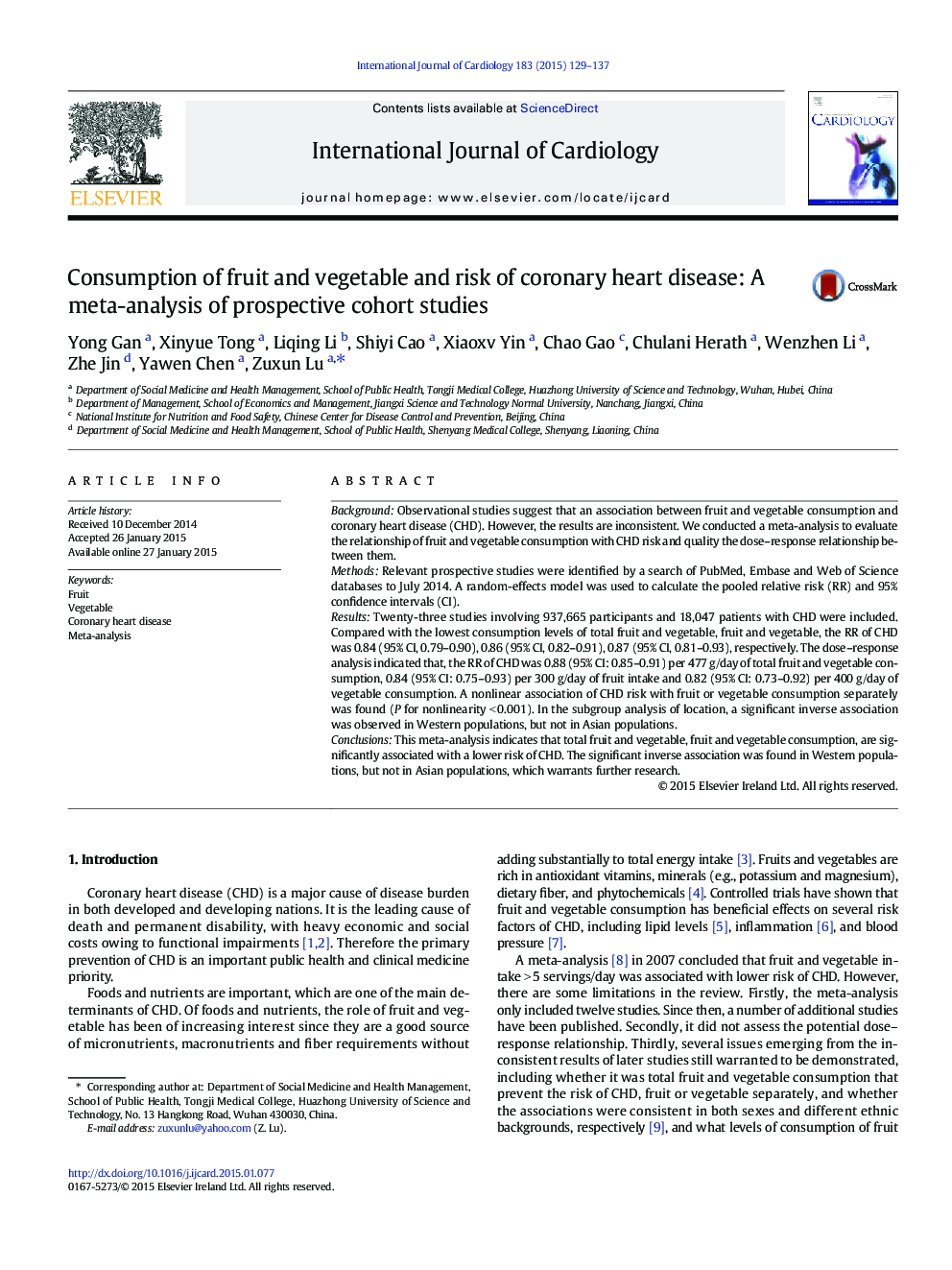| Article ID | Journal | Published Year | Pages | File Type |
|---|---|---|---|---|
| 5968165 | International Journal of Cardiology | 2015 | 9 Pages |
BackgroundObservational studies suggest that an association between fruit and vegetable consumption and coronary heart disease (CHD). However, the results are inconsistent. We conducted a meta-analysis to evaluate the relationship of fruit and vegetable consumption with CHD risk and quality the dose-response relationship between them.MethodsRelevant prospective studies were identified by a search of PubMed, Embase and Web of Science databases to July 2014. A random-effects model was used to calculate the pooled relative risk (RR) and 95% confidence intervals (CI).ResultsTwenty-three studies involving 937,665 participants and 18,047 patients with CHD were included. Compared with the lowest consumption levels of total fruit and vegetable, fruit and vegetable, the RR of CHD was 0.84 (95% CI, 0.79-0.90), 0.86 (95% CI, 0.82-0.91), 0.87 (95% CI, 0.81-0.93), respectively. The dose-response analysis indicated that, the RR of CHD was 0.88 (95% CI: 0.85-0.91) per 477Â g/day of total fruit and vegetable consumption, 0.84 (95% CI: 0.75-0.93) per 300Â g/day of fruit intake and 0.82 (95% CI: 0.73-0.92) per 400Â g/day of vegetable consumption. A nonlinear association of CHD risk with fruit or vegetable consumption separately was found (P for nonlinearity <Â 0.001). In the subgroup analysis of location, a significant inverse association was observed in Western populations, but not in Asian populations.ConclusionsThis meta-analysis indicates that total fruit and vegetable, fruit and vegetable consumption, are significantly associated with a lower risk of CHD. The significant inverse association was found in Western populations, but not in Asian populations, which warrants further research.
